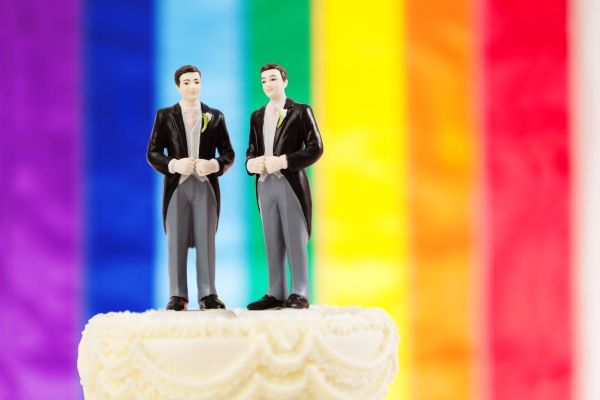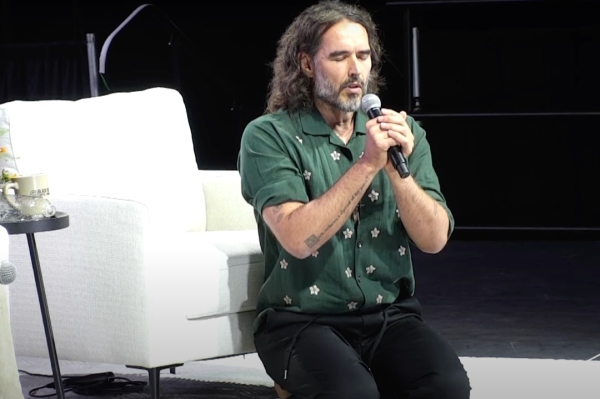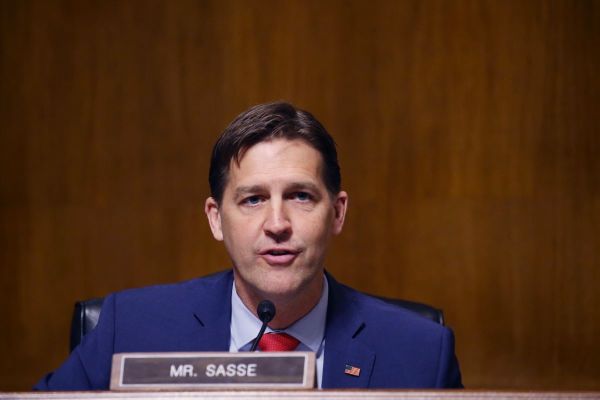Telling the uncomfortable truth about racial reconciliation and the Church's struggle to achieve it
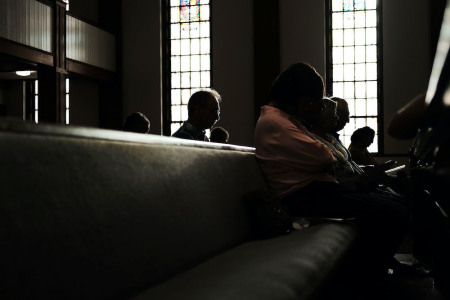
In the wake of global protests over inequality and police brutality sparked by the killing of George Floyd, many American Christians and churches are now struggling to strike the right note on racial reconciliation. Some religion scholars and pastors also warn that healing can’t happen without first telling the truth about the Church’s record on race.
And in a field of varied experiences, competing narratives about what racial reconciliation means, warnings against political exploitation in the search for it, claims of apathy from white congregations and fearful leaders during an election year in the middle of a pandemic, telling the truth and engaging in constructive dialogue on the issue can be difficult to do.
“The Church across the United States probably reflects the rest of society — polarized,” Doug Weaver, professor of Baptist Studies and director of the J.M. Dawson Institute of Church-State Studies at Baylor University, told The Christian Post in a recent interview when asked to gauge how the Church has progressed on the issue of racial reconciliation.
“I have a Ph.D. student that works with me that says ‘we really shouldn’t talk about racial reconciliation; we should talk about conciliation because the hard work of conciliation never has happened.’ What he says is you can’t really reconcile what you never had together to begin with. And I think that’s a really good insight. The Church has struggled with issues of race from the very beginning of the story of the Church in the United States.”
While the concept of racial reconciliation is expressed in different ways in specific communities in the U.S., Racial Equity Tools explains that it includes public acknowledgement of racist events and crimes such as apartheid or violence against groups of color.
The process may also examine and make public the current impact of such events, as well as their historical occurrence. Individual victims can also be allowed to tell their stories for the record as one part of a healing process while individual perpetrators may also acknowledge their complicity. Formal and serious apologies are also often part of this work where victims can choose to accept or reject that apology.
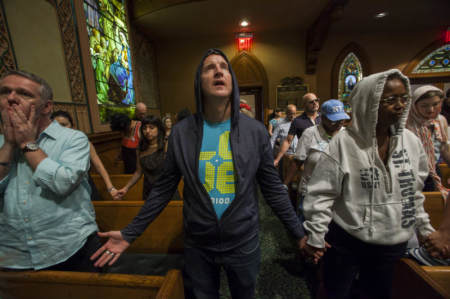
The William Winters Institute for Racial Reconciliation at the University of Mississippi defines it this way: "Reconciliation involves three ideas. First, it recognizes that racism in America is both systemic and institutionalized, with far-reaching effects on both political engagement and economic opportunities for minorities. Second, reconciliation is engendered by empowering local communities through relationship-building and truth-telling. Lastly, justice is the essential component of the conciliatory process — justice that is best termed as restorative rather than retributive, while still maintaining its vital punitive character."
Weaver said he is aware of many Christian churches and groups that have been taking steps toward reconciliation through initiatives such as the New Baptist Covenant launched by former President Jimmy Carter in 2007, but believes these efforts have been limited in achieving effective reconciliation.
“They’ve developed programs with white and African American churches that may be close by and in communities but have really never done much work,” Weaver said.
“I grew up back in the 60s and the civil rights movement … Occasionally you would have churches on a Sunday, the white church and a black church would get together. And there might be a worship service and that was certainly progress but it was limited progress,” he said.
Looking at attempts at reconciliation in churches over the last 60 years, he said, much of it hasn’t been good.
“If we really started integrating in the 60s, you could say over the last 60 years there hasn’t been a lot of good work done. I’m encouraged by some of the work that’s being done by people but I also am disappointed especially when you look at certain churches today that have seemed to be so polarized politically and that bleeds over into the work of the church, especially in terms of race,” Weaver said.
Racial reconciliation as an issue in the church
Many churches, particularly white congregations, Weaver explained, don’t see racial reconciliation as an actionable priority even though they may acknowledge that it is important.
This observation is supported by recent research from Barna, which shows that less than 30% of American churches are actively engaged in addressing racism or racial inequality even though most pastors agree that churches should oppose the social ills.
“It’s not that different racial groups don’t think these issues [of race] aren’t important. It’s that there’s this question of how important they think it is. If you have a hierarchy of values, which ones are most important to you, I do think that’s where the Church at large can be indicted, and that race has not been at the top of the list even though it should be. Churches tolerate racial discrimination, it should never be tolerated, but … history shows that,” he said.
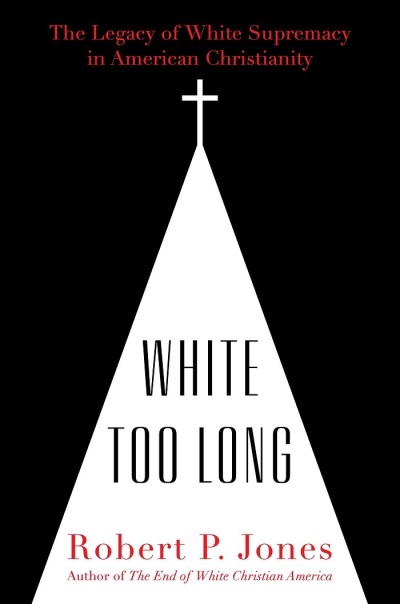
Robert P. Jones, founder and CEO of the Public Religion Research Institute, argued in a recent analysis how decades of research shows that white Christians are more racist than their secular counterparts and that white Christian churches, as cultural institutions have legitimized the dominance of white supremacy. His analysis is also presented in his latest book, White Too Long: The Legacy of White Supremacy in American Christianity.
“A close read of history reveals that we white Christians have not just been complacent or complicit; rather, as the nation's dominant cultural power, we have constructed and sustained a project of perpetuating white supremacy that has framed the entire American story,” he wrote in a recent op-ed on the book published by NBC News. “The legacy of this unholy union still lives in the DNA of white Christianity today — and not just among white evangelical Protestants in the South, but also among white mainline Protestants in the Midwest and white Catholics in the Northeast.”
He added: “Consider the cultural context in which American Christianity, both Protestant and Catholic, was born. In the 18th and 19th centuries, as Protestant churches were springing up in newly settled territories after Native American populations were forcibly removed, it was common practice — observed, for example, at the Baptist church that was the progenitor of my parents' church in Macon, Georgia — for slaveholding whites to take enslaved people to church with them. And as late as the 1940s, urban Catholic parishes in major cities such as New York still required Black members to sit in the back pews and approach the altar last to receive the bread and wine of the Eucharist.”
The George Floyd effect
In the wake of George Floyd’s tragic killing, Christian leaders of all stripes expressed outrage and it sparked a flurry of repentant acts of charitable giving and, activism and prayer meetings seeking forgiveness for racism.
Floyd’s killing also prompted President of the Southern Baptist Convention, J.D. Greear, to endorse the black lives matter movement as a Gospel issue while denouncing the organization behind it. Greear’s declaration attracted much criticism from many in the ranks of the SBC who conflated his support for the issue with support for the organization that also promotes a far-left agenda along with their advocacy for racial justice.
Weeks later, Pastor John Onwuchekwa, a black lead pastor of the diverse but predominantly black Cornerstone Church Atlanta, would announce that his congregation voted to leave the SBC even as the denomination highlighted data on how it was working on issues of diversity.
Onwuchekwa, who declined a request for an interview from CP, publicly raised concern on social media how differently white and black church leaders see the concept of racial reconciliation.
“I’d say the best way to enter into conversations is do your homework beforehand. One part is understanding that even the concept of racial ‘reconciliation’ is often a majority culture concept aimed at reconciling the races. While reconciliation is the ultimate goal, so many people treat reconciliation as the pathway as if the solution is as simple as reconciling two people that have an argument,” Onwuchekwa said.
“While the majority culture is often concerned with racial ‘reconciliation,’ minorities (who already have a ton of reconciled majority culture relationships) are concerned with something different — namely racial equality and justice. The gospel in action is needed to address these issues. And in order to understand how the gospel needs to be applied, there needs to be understanding as to what exactly is the problem. A proper diagnosis is needed,” he insisted. “In other words, (as stated above) before any conversation is helpful it’s important that both parties that come to the table are able to define the problem the same way.”
Reconciling perspectives on race
Studies show significant gaps in the way people from different ethnic groups view racism. A 2016 Barna study showed, for example, that while 59% of black U.S. adults strongly disagreed that racism is a problem of the past, only 39% of white adults strongly disagreed. There was also confusion on whether the Church specifically contributed to that problem. While six in 10 U.S. adults somewhat or strongly disagreed, black Americans were nearly twice as likely as white Americans to view Christian churches as complicit.
For scholars like the Rev. Brenda Salter McNeil, associate professor of reconciliation studies in the School of Theology at Seattle Pacific University, who says she agrees with Onwuchekwa’s point about engagement on the issue, Christians listening to concerns about issues of racial justice in America is long overdue and she hopes the current dialogue will result in positive change.
“I do think that we’re at a tipping point. I do think that we’re in the middle of what I call a catalytic event or some people call a Kairos moment. One of those kind of undeniable, life-changing moments in history where everybody regardless of how we feel about it we won’t be able to not say that had an impact on us in some way shape or form,” McNeil told CP.
“There are certain times where whether we agree or disagree, it’s undeniable that this is a historic, strategic time that we are living in right now. If I had to say what I make of it, I think we’re living in a strategic moment in history that will become a defining moment. People will ask us, where were you? What were you writing about? They’ll be saying to me, what were you preaching about, they’ll be asking the church, what did you do?”
Why listening is important
It was a mild day on Oct. 29, 2015, when McNeil publicly warned more than 1,000 Christian leaders in New York City that the Black Lives Matter movement’s message on racial justice should not be ignored by the church after she, along with other clergy, met with some of the organization’s leaders in Washington, D.C., and they complained about the church’s hypocrisy on race.
“The ways we have not shown up for these young people who see us as inactive and lacking innovation. You see in every generation, there are seismic cultural shifts that wake us up to the reality that what's going on in the world around us must be paid attention to. Such is the case with the Black Lives Matter movement," McNeil said at the time during the Movement Day 2015 conference, hosted by the New York City Leadership Center at the Hilton Midtown Hotel in Manhattan.
A year earlier in 2014, protests had erupted across the United States over the police killings of Michael Brown, an unarmed 18-year-old in Ferguson, Missouri, and Eric Garner, 43, who died tragically after he was placed in a chokehold by now former NYPD police officer Daniel Pantaleo.
The public response to their deaths catapulted the Black Lives Matter movement to national prominence. While the lack of connection to the church among those behind the movement was troubling for many conservative Christians, McNeil suggested after meeting with the group’s leaders that God was using them to speak to the issue of racial reconciliation.
“God's talking to these young people. And these young folks have something to say and we might not like how it's packaged, but I believe God is breaking in and saying something," she said at the time.
A biblical reconciliation
While McNeil agrees with Weaver that conciliation is a logical prerequisite for racial reconciliation, if the issue is being examined from a biblical perspective, she argues a higher level of reconciliation, at least conceptually, can be arrived at.
“If conciliation has to do with what we’ve done historically in this country, there has not been any conciliation, therefore you can’t reconcile that. But God, I think, has called us to an ideal that is not rooted in history. It’s an ideal that is rooted in the Imago Dei. It’s rooted in the Kingdom of God and God at the beginning said when creation was made, declared ‘this is good,’” McNeil said.
“We are reconciling that. We are reconciling ourselves to what we’ve been called to be by God and how far we’ve fallen from it. That’s the calling for the Church, I think, to reconcile ourselves to the call of God that all people would reach their full God-given potential. We don’t do it but that’s what we’re trying to reconcile. That for which God came, that for which God created the Church — this multiethnic, multinational, multilingual group of people who represent the Kingdom. That’s the call of reconciliation.”
As many churches seek out practical ways to express racial reconciliation, McNeil explained that facilitating multiethnic churches managed the right way are a step in the right direction.
“You do need to have people from diverse backgrounds together who know each other in order to have some sense of empathy for what each other experiences. So to that degree, diversity and multiethnic churches have helped to create more senses of people having connections to one another,” she said.










